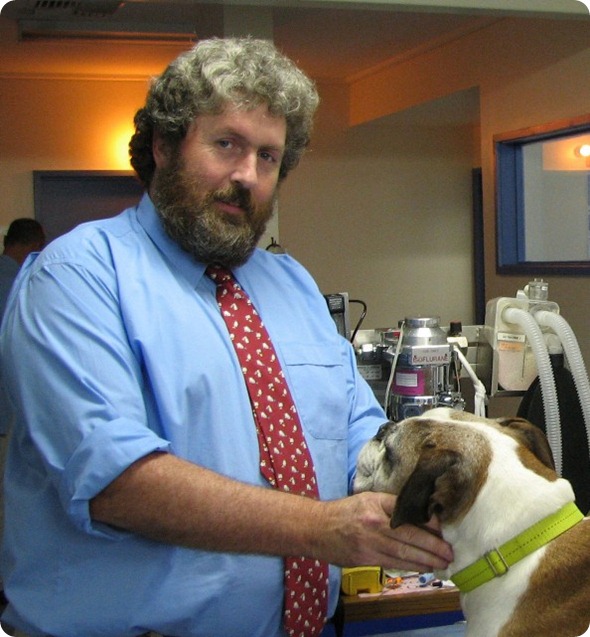A diagnosis of cancer once spelled the end for our animal companions but the launch today of a specialty cancer clinic, led by one of Australia’s leading veterinary oncologists at the University of Sydney, offers new hope.
“Our clinic is one of the first specialist oncology services to be established in a veterinary teaching hospital in Australia,” said Dr Peter Bennett from the University’s Faculty of Veterinary Science and the newly appointed head of the cancer service. Dr Bennett’s position is a joint appointment with the NHMRC Clinical Trials Centre to drive comparative research. 
Both dogs and cats have a range of cancers, and many of these are similar to the diseases seen in humans including lymphoma, melanomas, skin cancer and bone tumours.
“My ambition is to identify cutting edge treatment options developed for people that may benefit veterinary patients, as well as use information gained from animal cases to help our understanding of how cancers occur and how we manage them in people. Most importantly we want to improve and maintain the quality of life of both human and animal cancer patients.”
Human cancer sufferers will also benefit from the University’s recent establishment of a research group to compare human and animal cancer. Dr Bennett will contribute to the recently established Comparative Oncology Special Interest Group (CO-SIG) chaired by Dr Beata Ujvari, which promotes collaboration between human and animal cancer researchers for mutual benefit.
Comparative oncology is a multidisciplinary approach that connects clinicians, oncologists, pathologists, epidemiologists and molecular researchers who study naturally occurring animal tumours.
“Comparative oncology has been a major contributor to better pet care in America in the last five years but this diverse, multidisciplinary group is new for Australia, where veterinary oncology is only a recent development,” Dr Bennett said.
Animal cancer studies are essential to improving our understanding of what is happening at the molecular level in cancer development.
One research area being focused on by the University is viruses that increase the risk of cancer in cats. “We are looking at the role of viruses in cat lymphoma. Cats are now the most popular choice of pet in the world and lymphoma is the most common cancer they suffer. It is also common in humans,” said Associate Professor Julia Beatty, who is leading the research.
Knowing that the Epstein-Barr virus can cause cancer in people with immunodeficiency problems, such as transplant recipients or AIDS patients, Associate Professor Beatty is studying if a similar virus causes lymphoma and other cancers in cats.
“Our aim is to design treatments and vaccines to improve cancer treatment outcomes in cats and people,” Associate Professor Beatty said.
Members of CO-SIG are also investigating molecules that influence the clinical outcome of canine mast cell tumours in dogs; the high incidence of lymphoma in some dog breeds; and Tasmanian Devil Facial Tumour Disease, where a cancer is transmitted by bites due to the devils’ immune system failing to recognise the need to respond.